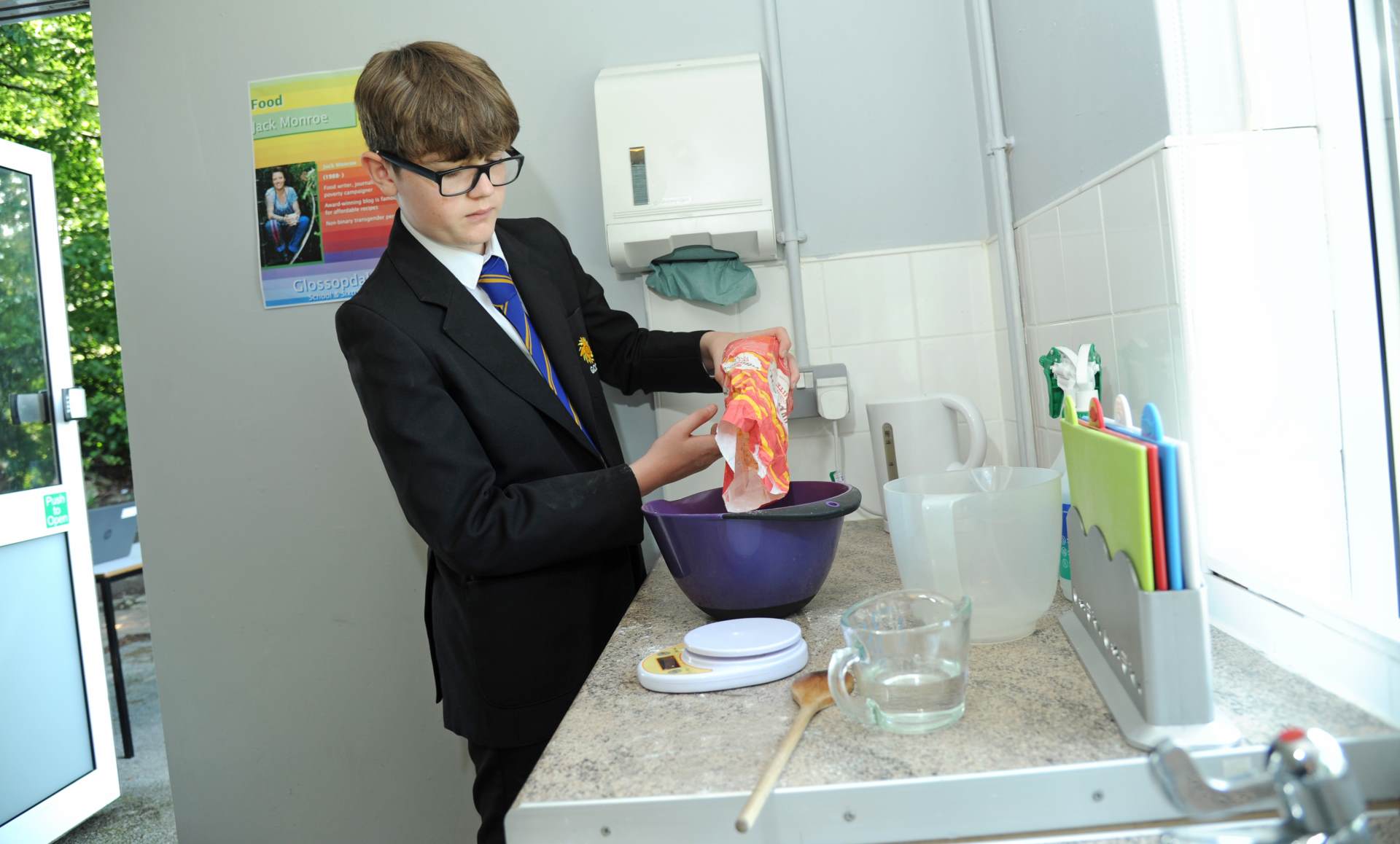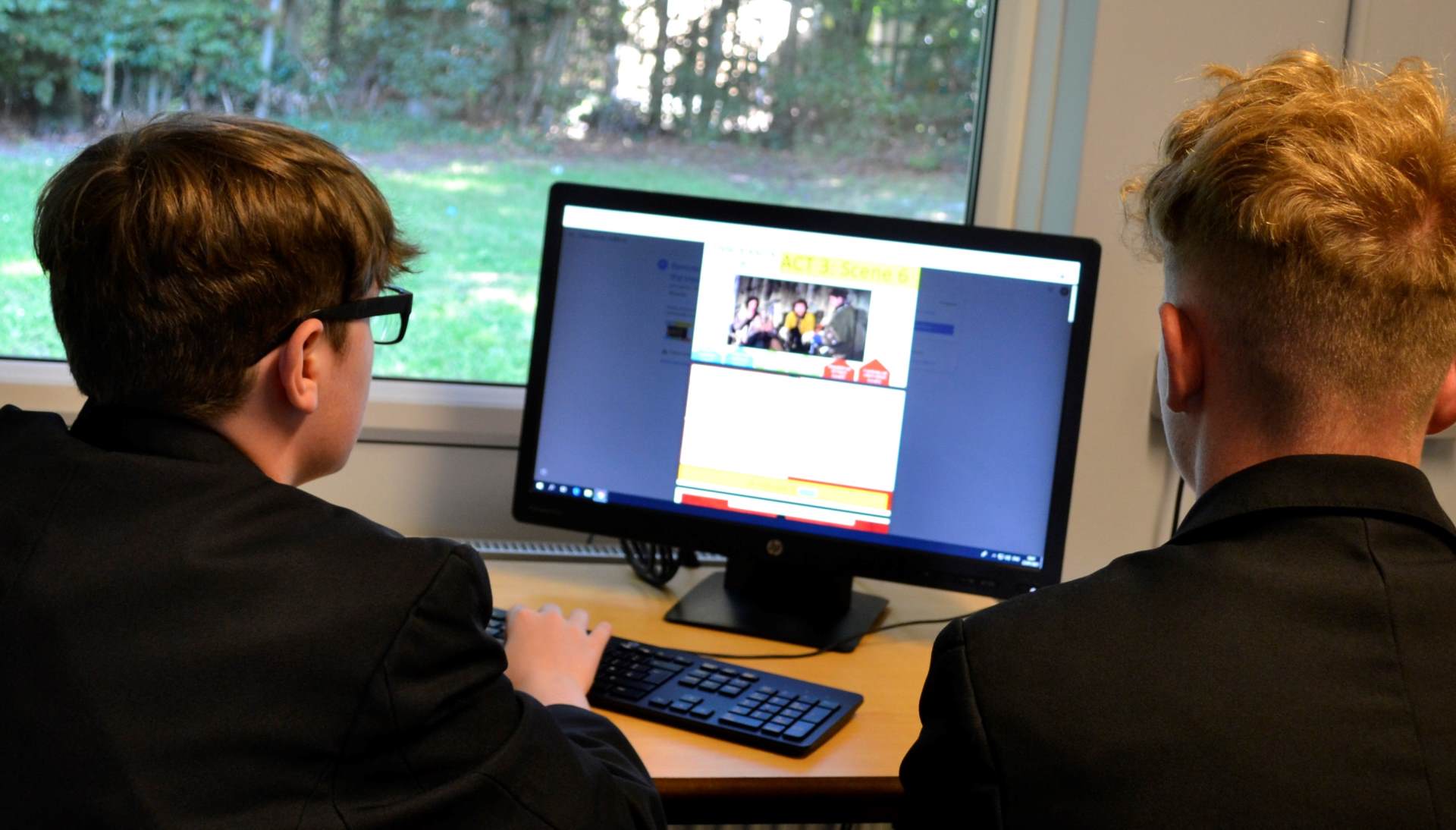Additional Provision
At Glossopdale School, we work to ensure that all students thrive and reach their full potential. There are instances where we provide additional provision and support to ensure that this happens
This additional provision is usually implemented when students face challenging circumstances and need additional support to significantly improve their behaviour and attitude towards learning, ensuring that they have the best possible life outcomes.

Principles of additional provision:
- To improve the life outcomes of our most vulnerable students.
- Ensure that we are meeting the learning, wellbeing and safeguarding needs of all students, and most crucially those with high levels of need and vulnerability.
- To work with a multidisciplinary approach, to ensure that the students’ complex needs both inside and outside of school are being met.
- High expectations and compassion for pupils are not mutually exclusive. We follow evidence-informed practice in supporting students’ emotional and social wellbeing
- Students with high levels of need will often require additional provision. This takes many forms and the school adopts a graduated approach to ensuring these needs are met.
- The purpose of additional provision is to supplement, rather than substitute quality first teaching in the classroom, ensuring that students receive the necessary additional support to thrive.

How this is implemented:
Additional support will be provided using the graduated approach model. Students requiring additional provision will be identified in the school’s behaviour reporting cycles.
There are 6 stages of support for the additional provision approach:
Stage 1 Additional support:
Additional support is used as an early intervention tool. Pupils at this stage would be referred if they were displaying challenging behaviour or extremely low attendance, affecting their ability to engage in education.
This may be evidenced by an increase in exclusions, poor attendance, lack of engagement and poor attitude to learning.
Additional support may include:
- Referrals to appropriate external agencies, such as CAMHS, behaviour support, EP service, school counsellor, OOST etc.
- Mentoring and/or Peer Support e.g. buddy system, peer counselling
- Use of Positive Reports and Yellow Reports/Red SLT link report
- Introduction of Learning Support in lessons
- The following may also be offered to students:
- Anger Management
- Social Skills
- Listening skills
- Solution-focused discussion
- Cognitive behavioural techniques
- Raising self-esteem
- Coping strategies
Stage 2: Half Day Intervention
This is an early intervention programme and intended outcomes would be agreed upon with parents; however, they will include an improvement in behaviour and attendance and re-engagement with learning.
A meeting will be held to agree the curriculum offer, and the targets to succeed. These will be captured in a THRIVE Commitment contract with the data and feedback needed in order to establish the success criteria.
Stage 3: One Day Prevention
This one-day programme will run for half a term also and provides intensive intervention for students whose behaviour and lack of engagement is causing significant concern at school. It is based at the THRIVE centre and its emphasis is on providing students with the skills to maintain their placement within the mainstream setting.
Students on this programme may have accessed THRIVE or had additional support before and this stage would be appropriate for students requiring support outside of the mainstream building.
The aim of this prevention is to facilitate student re-engagement with learning within the mainstream environment. There is also a focus on developing students' awareness of their behaviour and providing strategies and support to enable them to manage their ‘triggers’ and finding strategies to communicate and deal with the issues and anxieties they may face.
A meeting will be held to agree the curriculum offer, and the targets to succeed. These will be captured in a THRIVE Commitment contract with the data and feedback needed in order to establish the success criteria.
Stage 4: Re-engagement
This is a full-time programme for Key Stage 3 students who are at risk of permanent exclusion and would run for a full term. It will provide intensive intervention for students whose behaviour and lack of engagement is causing concern at school.
A key part of the programme is to develop character skills – creativity, confidence, collaboration, communication, commitment (perseverance and grit) and natural curiosity.
The aim of the re-engagement programme is to increase resilience in disengaged, vulnerable KS3 students and equip them with the skills necessary to succeed at KS4.
There is also an emphasis on outdoor learning to benefit students’ physical development; emotional and mental health; well being and societal development.
This process would also involve the family in the process of character development.
The aim of student re-engagement is to provide learning and successful reintegration into the mainstream environment.
Stage 5: School Engagement Programme (Part-time placement)
This involves a part time placement in the THRIVE centre. This would typically include English, Maths and would also include vocational learning.
There will be a bespoke vocational offering based on the student’s career/next-step aspirations.
This would be used to ensure the student remains engaged in their education, but where they are eligible to still attend the main school for a part of their timetable.
The aim of the programme is to provide pupils with a practical and vocational alternative curriculum offer that will help ensure they progress to Post-16 education, training or employment as well as ensuring that students are engaged in their learning.
Stage 6: Full-time Placement
At KS3 we will offer a tailored curriculum to motivate and re-engage students. This would include core subjects, physical activities, PSHE and an understanding of the wider world and the student’s place in it.
This would be typically used where ‘Re-engagement’ has not been fully successful, or if there are significant concerns around reintegration
The aim is to prepare and equip students for KS4 study, ensuring that there is a wide curriculum offer so that students can progress to all available KS4 pathways
At KS4 we will offer a variety of courses delivering both formal qualifications and personal development.
We create a tailored curriculum for all our students, which typically includes core, PE, PSHE, mentoring and a range of vocational options.
Work experience and engagement with external providers are also typically offered.
The aim is to provide students with a practical and vocational alternative curriculum offer that will help ensure they progress to Post-16 education, training or employment.

The THRIVE Centre
To facilitate a bespoke curriculum and to ensure that students receive the specific personal, social and emotional support that they require, we set up The Thrive Centre. This is located at the end of the main school car park and is equipped with the same modern facilities that are in the main building.
There are two members of staff who work in The Thrive Centre; delivering the bespoke curriculum offer that we have in place for each student receiving additional provision.
